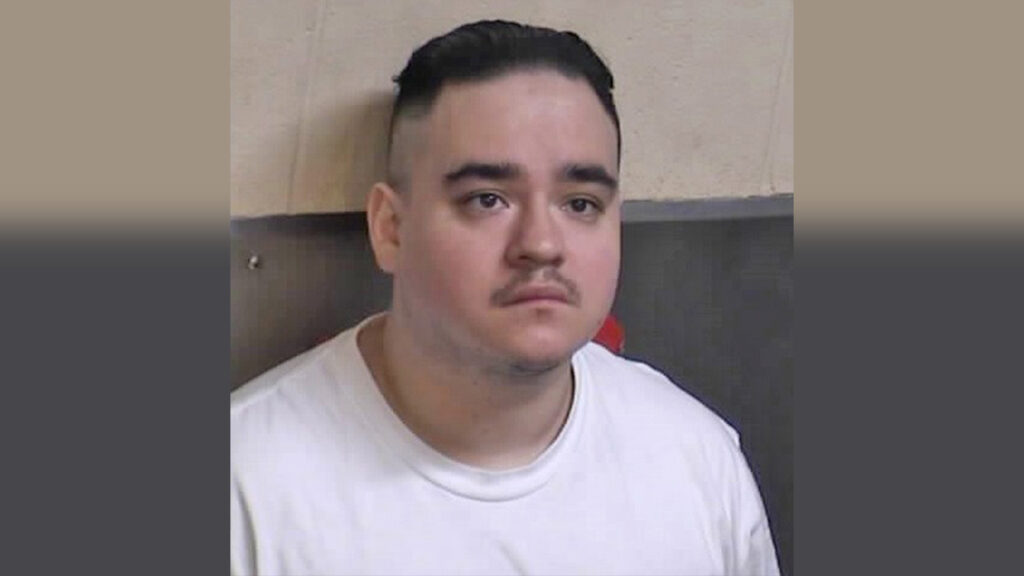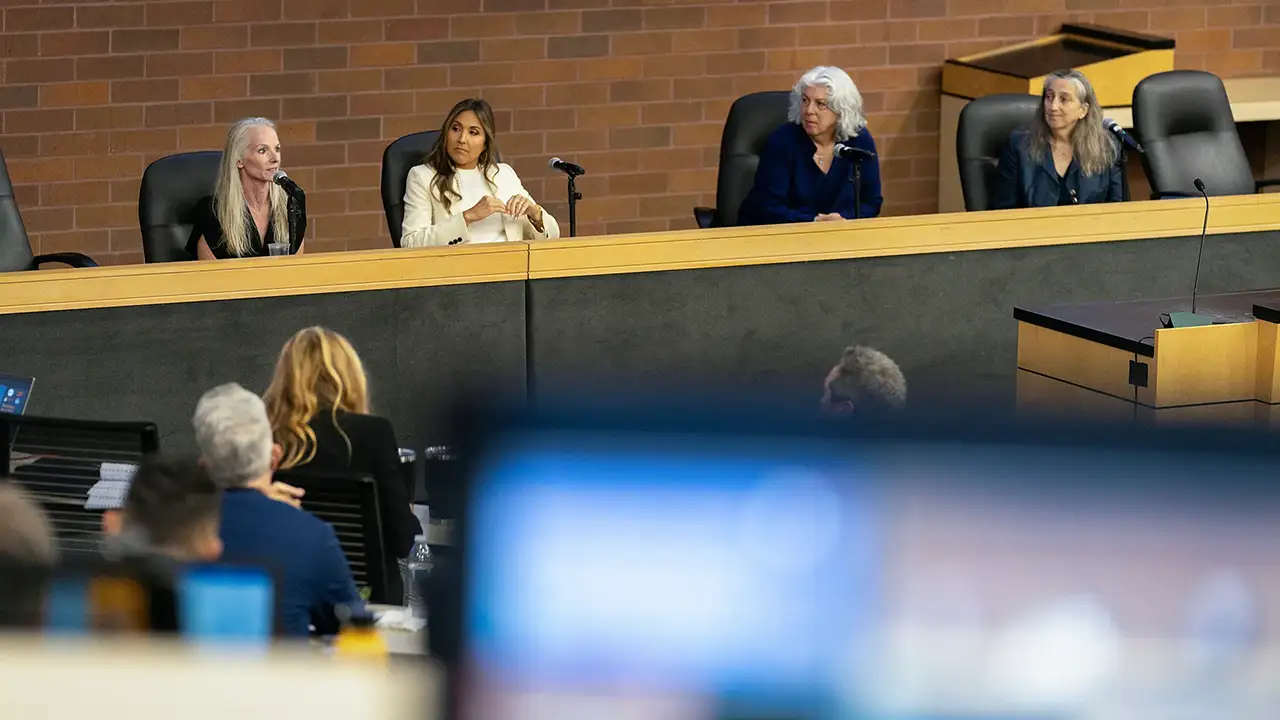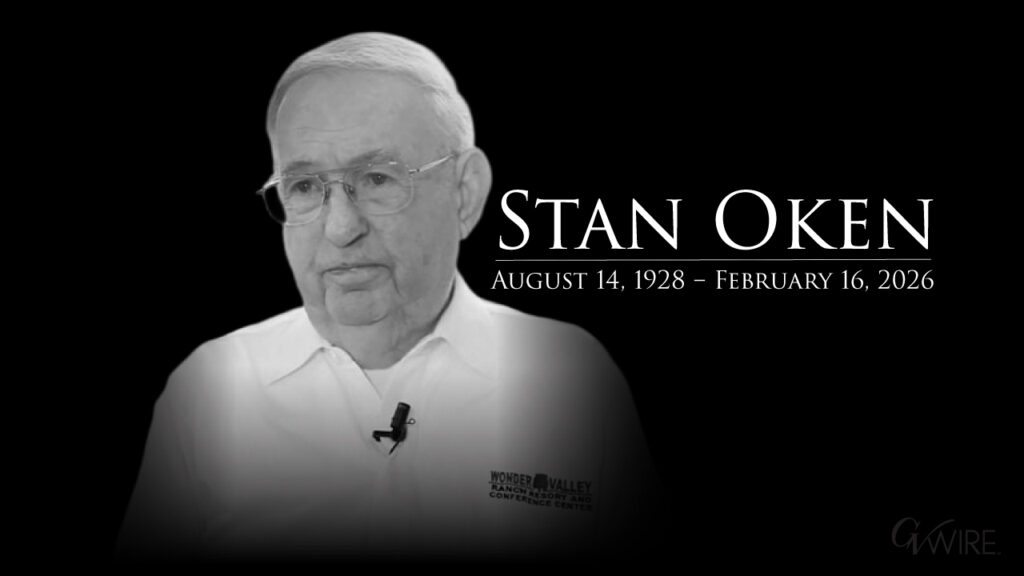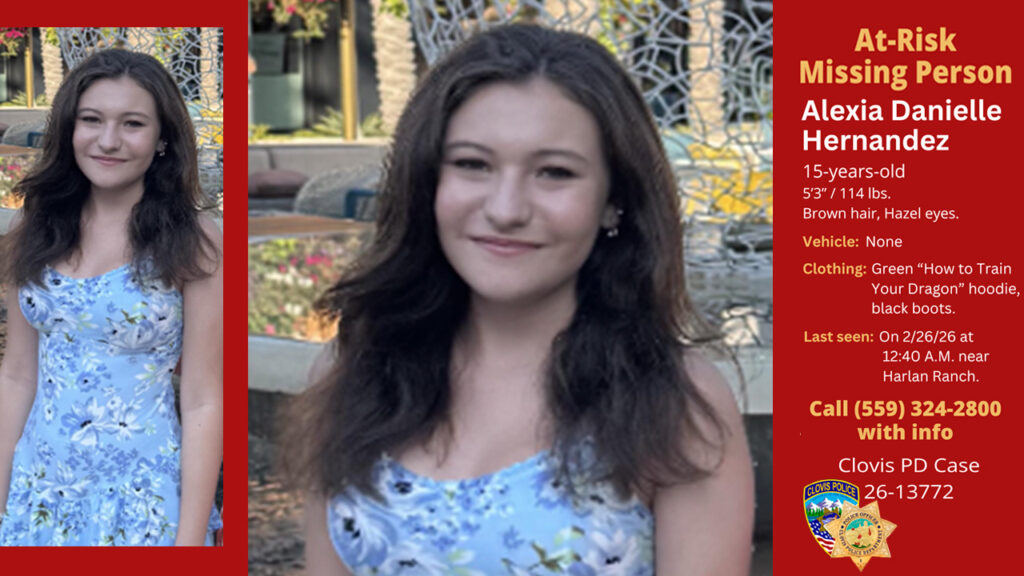California's campaign watchdog faces criticism for slow enforcement, potentially leaving voters uninformed about violations. (CalMatters/Jungho Kim)

- The FPPC took 6 years to conclude an investigation into Compton councilman Isaac Galvan's campaign finance violations.
- 20 candidates in November's election for state and federal offices have open cases against them with the FPPC.
- The FPPC has worked to reduce its case backlog, but some worry enforcement has become too lenient as a result.
Share
|
Getting your Trinity Audio player ready...
|
A $1,044 outing at a glitzy Hollywood nightclub. A $1,316 meal at a Los Angeles steak and seafood restaurant. A $4,500 experience to see the L.A. Dodgers. Isaac Galvan paid for them all — with campaign cash, a state probe found.

Yue Stella Yu
CalMatters

Jeremia Kimelman
CalMatters
In his nine years on the Compton City Council, Galvan frequently spent campaign donations for personal purposes, kept shoddy financial records, and repeatedly failed to disclose donors and expenditures accurately and on time, if at all, the California Fair Political Practices Commission concluded in its investigation.
But the probe lasted six years — so long that voters reelected Galvan twice and he left office before those violations were made public in July 2022. During the investigation, he continued to miss filing deadlines, got indicted for an alleged bribery scheme and was tossed out of office by a judge in May 2022 for election fraud.
“What took them so long?” asked lifelong Compton resident Gilda Blueford, who only learned of Galvan’s campaign finance violations from CalMatters. “If we could have known what was going on … perhaps he would not have been re-elected.”
Enormous Backlog of Cases
Historically plagued by what some staff called an “enormous” backlog, California’s campaign watchdog has sometimes taken years to resolve cases — exposing violations or exonerating politicians only after they left office or won an election, a CalMatters analysis has found. While the agency has worked to expedite enforcement, advocates, officials and past and current commissioners say delayed actions can diminish public trust in the state’s ability to prosecute corruption effectively.
“If the FPPC doesn’t really clamp down on those obvious abuses quickly, then it’s a toothless watchdog,” said state Sen. Steve Glazer, an Orinda Democrat who has championed laws to tighten campaign ethics regulations.
The lag in enforcement could leave some voters in the dark in upcoming elections. As of last week:
- On the November ballot, 20 of the 305 candidates for the state Legislature, U.S. House and U.S. Senate have an open case against them, commission data shows.
- Two of the state’s eight constitutional officers are now under investigation — Gov. Gavin Newsom for late filings and Insurance Commissioner Ricardo Lara for allegations of “laundered campaign contributions” — and both won re-election as their cases were pending.
- Seven of the eight top constitutional officers — all but Lt. Gov. Eleni Kounalakis — have had past violations, ranging from improper disclosures to illegal campaign contributions, according to commission enforcement records.
The commission, created by California voters through a 1974 ballot measure following the Watergate scandal, has policed campaign and ethics violations statewide and in local races for 50 years. The backlog was an open secret among staffers and commissioners, with some senior counsels arguing in 2022 the problem had existed for “at least 20 years.”
Over the past decade, the agency has seen its caseload wax and wane, peaking in April 2020 at 1,874 unresolved cases, staff reports show. Among cases resolved between 2017 and 2023, 15% took more than two years to close, with the longest lasting almost seven years, according to a CalMatters analysis of data obtained through a public records request.
The agency has added staff, expanded programs to educate political candidates and streamlined enforcement of minor cases while freeing up resources for more serious violations, said commission Chairperson Adam E. Silver. In 2022, it adopted a policy directive to cap the carryover caseload at 625 each year and mandated a 75% reduction in cases opened before 2023, causing the backlog to plunge, he said.
“So long as that continues, then I would say the problem of cases building up and having a ‘backlog’ that grows and grows and grows, that’s resolved,” Silver said in an interview.
But some were concerned the agency may have become more lenient as it closed cases more quickly. Last year, the commission issued the lowest dollar amount of penalties and the highest percentage of warning letters — a method reserved for low-level offenses with minimal public harm — in the past decade, according to commission reports. Four in five cases where violations were found resulted in a letter.
James Lindsay, enforcement chief of the commission, said in multiple public meetings that the increased use of warning letters was partly because the agency prioritized closing minor cases and acknowledged in June that it would become more difficult to find “easy closures.” But he assured the commission in January that the letters were never issued “in scenarios that were not justified in the past.”
Some ethics advocates, however, warned against the practice.
“Because of a policy to be caught up on mandates, you don’t throw the baby out with the bathwater,” said Sean McMorris, transparency, ethics, and accountability manager at the California Common Cause. “The answer is not less enforcement or diminished fines. The answer is more person power to enforce the law adequately.”
We Don’t Believe in the System
Galvan — the first Latino to ever serve on the Compton City Council — was a symbol of hope for diverse representation, Blueford said.
But Galvan’s career was littered with violations, according to state and court records. He failed to file any disclosures before being elected in 2013, drawing a $1,000 fine from the commission that November. That did not stop him: He continued to file paperwork late, until in March 2017, he stopped filing altogether, according to the commission’s investigation, details of which have not been previously reported.
A month later, he was re-elected.
He also spent more than $55,000 of the money he raised between 2013 and 2017 for personal use, the investigation said. In 2017, he even posted about one of those expenses at a Beverly Hills winery on social media, according to bank records included in the probe.

During the investigation, Galvan was hard to find, at times promising to provide records he never delivered, and efforts to directly serve him the subpoena for those records failed, commission documents show. Once, he was celebrating the premiere of the movie “Daddy’s Home 2” on the day the subpoena server tried to reach him, according to his social media post. On another occasion, Galvan entered the City Hall through a “private entrance,” documents show.
The commission fined Galvan $240,000 in 2022. But the agency had not received a payment as of Oct. 9, commission spokesperson Jay Wierenga confirmed.
The agency opened the case in February 2016 and assigned it that September, adding more staff and devising a plan to investigate in June 2017, according to Wierenga and the agency’s own case chronology obtained via a public records request.
The commission’s leaders acknowledged that Galvan’s case “took too long to resolve and that staff should have been assigned sooner,” Wierenga said in an email. But he said that Galvan’s extensive violations and lack of responsiveness was why the case took longer than normal, and asserted that recent reforms will “prevent significant delays.”

Compton City Council member Isaac Galvan (Facebook)
Compton City Council member Andre Spicer, who replaced Galvan in 2022, called the long duration of the case “a disservice.”
“I think that our lack of engagement is because we don’t believe in the system,” Spicer said. “If you have issues like this that take 10 years, eight years to sort out and damage is done, it reinforces the reasons why people don’t engage.”
Galvan and his then-bookkeeper, Gary Crummitt, did not respond to multiple inquiries over two weeks for comment. When reached by CalMatters last month, Galvan’s attorney during the investigation, Anthony Willoughby, said in an email: “There are a lot of moving parts to the matter you are seeking comment on.”
Related Story: California Pledged $500 Million to Help Tenants Preserve Affordable Housing. ...
Notoriously Slow
Galvan’s case is among many where, by the time they were resolved, the officials in question had won an election or left office.
In the city of Campbell in 2017, council members paid for ads with taxpayer dollars to influence election outcomes on three ballot measures about marijuana regulations, the commission found. But the findings were only made public six years later, after most of those officials had left office.
Former state Assemblymember Bill Brough spent campaign cash on family cell phone plans, hotel stays and a trip to a Boston Red Sox game, according to the commission, which didn’t conclude his case until last year, three years after he left office. Even he complained: “I just wanted to go on with my life,” the Los Angeles Times reported.
And a three-year investigation into state Assemblymember Diane Papan wrapped in May, resulting in a warning letter for improper reporting of contributions when she ran for San Mateo City Council in 2020, according to records obtained by CalMatters. Papan’s campaign provided records to the agency in 2021, but the staff waited three years before reaching back out — so long that Papan’s attorney, former FPPC enforcement chief Gary Winuk, questioned the lack of action in an email to the staff, and one witness the agency interviewed said he no longer remembered details of the contributions in question, records show.
Delays could create a sense that “there’s justice denied,” said commission vice chairperson Catharine Baker. “If you act too slowly, if there isn’t a resolution, potential bad actors aren’t brought to any real significant justice, and the public can’t have faith that the rules are being enforced — that there is someone watching the henhouse.”
Some open cases have also lasted years. Newsom, for instance, has been under a previously unreported investigation since 2021 for late disclosure of behested payments — donations to a person, nonprofit or a state agency at the behest of the public official that ethics experts say can be another avenue for special interests to curry favor. Another probe for potential campaign reporting violations has also been open since 2021, commission records show.
Officials are required by state law to disclose behested payments that total $5,000 or more from a single donor in a year, and upon meeting that dollar threshold, the official must report the payments within 30 days.
Between 2019 and 2021, Newsom’s office failed to file 17 behested payments totaling more than $14 million on time, including one filed more than a year after the due date, according to records obtained by CalMatters via a public records request.
In emails to the commission, Newsom’s staff blamed the delays on donors notifying the governor’s office of the payments after filing deadlines. They also said the governor takes his “reporting obligations very seriously” and submitted the documents within days of discovering the payments.
Many of those behested payments were made during the pandemic, “when the Governor’s office was focused on the quick mobilization of resources,” Newsom spokesperson Izzy Gardon said in a statement last week. “Our office remains committed to transparency and complying with FPPC requirements.”
Related Story: Fixing California’s Housing Crisis Starts With Rejecting Flawed Prop. 33 Rent ...
Lara — who accepted money in 2019 from donors with ties to insurers his agency oversaw — has been under investigation for two years for allegations of laundering campaign donations, records show. Between 2021 and 2022, insurance companies funneled $122,500 through the leadership fund of the California Legislative LGBTQ caucus — where Lara served as vice chairperson and remains an ex-officio member — to support Lara, according to a complaint filed by Carmen Balber, executive director of the advocacy group Consumer Watchdog, which has also faced criticism for not disclosing its donors.
The last time she heard from the commission, Balber said, was when it opened the investigation in May 2022.
Lara told CalMatters last month he was not in touch with the agency and referred questions to his campaign attorney. The attorney, along with other groups named in the investigation, did not respond to a CalMatters inquiry.
“The answer is not less enforcement or diminished fines. The answer is more person power to enforce the law adequately.”
SEAN MCMORRIS, TRANSPARENCY, ETHICS AND ACCOUNTABILITY MANAGER, CALIFORNIA COMMON CAUSE
Former commission chairperson Ann Ravel said while some cases are complicated and time-consuming, late filings of behested payments and campaign finance forms should be easy cases to close. “We know there are deadlines,” Ravel said. “If they cannot monitor that, what are they monitoring?”
Even with complex cases, Ravel argued, swift resolution is possible. Right before the November 2012 election, the agency under her leadership forced Koch Brothers-associated groups to disclose $11 million in illegal spending on a pair of propositions through an emergency ruling from the California Supreme Court. The groups were fined $1 million a year later.
“That transparency was so important to the public, to the press, in order for there to be fairness in the system and also for people to have trust in government,” she said.
But speed is not all, Silver argued. “Just because you are spending a lot of time on one case doesn’t make it a waste of time,” he said. “It could have the effect of limiting complaints and violations in the future.”

And cases must be investigated fully for due process, even if no violations are ultimately found, said commission executive director Galena West, who led the enforcement division for five years.
“Isn’t exonerating someone also valuable for the public to know?”
The agency’s goals are to ensure public officials “act in a fair and unbiased manner,” promote government transparency and to build public trust in the political system, according to its website. State law and commission regulations do not explicitly require staff to resolve cases before elections.
But frustration lingers among campaign finance attorneys, those who filed complaints and even politicians under investigation.
“The FPPC is so notoriously slow that it’s not worth bugging them,” Balber said. “If campaign violations are not identified and prosecuted in a timely manner, then after-the-fact penalties have no impact on the elected officials who are being investigated.”
Delays create loopholes for officials willing to chock up the penalties as the cost of winning an election, said McMorris of California Common Cause, who likened the state campaign finance laws to “a tube of toothpaste under pressure.”
“There’s multiple holes in it. You plug one, those bad actors immediately go find the other hole that they can exploit,” he said. “It diminishes public trust in the democratic process and in our representatives.”
And for public officials who “inadvertently” made a mistake or who are innocent, the lengthy probe is “like a sword hanging over your head” even after leaving office, said Glazer, the state legislator.
State Treasurer Fiona Ma — who was fined $11,500 earlier this year for failing to disclose more than $860,000 in payments in her 2018 campaign — said the yearslong investigation meant extra costs to retain her treasurer and attorney.
“I’m just going to have to pay a fine at some point, so just send me the bill,” Ma, a 2026 candidate for lieutenant governor, told CalMatters. “But you know what? This is … the cost of doing business in elected office. It just is. Everybody gets fined, just how much.”
Related Story: California Has Enough Debt. It Doesn’t Need $10 Billion More for a ...
What Caused the Backlog?
Anecdotes of backlogs and delays reached Baker before she was appointed to the commission in 2021, she said. And early in her tenure, she quickly noticed how old cases were by the time staff presented them for commission decisions.
“I said ‘Look, there’s a problem. It’s severe. And we must do something,'” Baker said in an interview with CalMatters, joined by Wierenga, the spokesperson. “If we don’t, our tenures on this commission … will be partly a failure.”
The influx of complaints and referrals from state and local agencies contributed to the backlog, Baker said. Over the past decade, the number of complaints and referrals has generally crept up and surged in election years, peaking in 2022 with 3,103, compared to a low of 1,205 in 2015, according to the CalMatters analysis.
Lawmakers also assigned the agency more duties over the years, Baker and Wierenga noted. Wierenga said the agency’s caseload jumped in 2015 when the California Secretary of State began referring campaigns that failed to file a $50 annual fee. The commission received 2,460 referrals on May 1, 2015 — almost five times the number of referrals from all other agencies combined that year, he wrote in an email. In 2021, the enforcement of the law was transferred back to the Secretary of State.
Laws increasing disclosure of donors in campaign ads — including a 2018 law that regulated the text, color and font size — added more work for the commission, Wierenga said.
Additionally, staff responsible for parsing out complaints and referrals worth investigating sometimes opened cases when they shouldn’t have, especially under the pressure of high caseloads, Lindsay told the commission in January. Inexperienced staff also lacked understanding of the law, leaving the manager scrambling to train them, according to a 2022 memorandum by unit manager Tara Stock.
“If you’re overwhelmed, you’re not sure what the right answer is, the thought process is: ‘There’s no harm in moving that case forward,'” Lindsay said.
Burdensome “red tape” — including layers of reviews and approvals required to escalate a case — and a digital recordkeeping system that’s hard to navigate compounded the problem, staff said. In a 2022 letter, staff described the system as “slow, cumbersome, and sometimes, downright tedious.”
Some lawmakers and ethics advocates — while bemoaning slow enforcement — argue the agency is chronically understaffed and underfunded. The department’s budget and its number of employees, however, have steadily climbed — from $11.8 million and 66 employees in fiscal year 2017-18 to $19.6 million and 109 employees this year, according to state budget records.
The increases were largely tied to additional duties, however, and the agency’s base funding is not adequate, argued McMorris of California Common Cause. Elected officials may lack the political will to dedicate more money to the agency, or to expand the agency’s authority, McMorris said.
“You are essentially asking the politicians who are being policed by this agency to increase the budget for policing,” he said. “There’s a tendency to do the least amount and only do it when there’s a scandal or evidence that something’s being exploited.”
The commission has only been audited once — in 1998 — in its entire 50-year history. That’s because “elected leaders have decided it’s not in their interest to do so,” said Glazer.
Efforts to Speed Up Enforcement
Over the years, the agency has created and expanded programs to expedite cases with minor violations. While commission leaders argue the steps can prevent backlogs, some ethics advocates say some programs are applied too broadly and could give bad actors too much leniency.
To free up staff to pursue more egregious cases, the commission created a “streamline program” in May 2015 and has since expanded it to include lower-tier violations, such as late filings, contributions above limits and recordkeeping errors. The cases often result in lower penalties approved by the enforcement chief. Between 2015 and 2023, an average of 20% of cases closed with violations found each year went through that program, according to executive staff reports.
The commission also has had an educational program since 2022 to allow inexperienced offenders with low-harm violations to complete a class to avoid penalties. The Legislature funded three full-time staffers for the program last year, and 280 public officials had completed the courses by August.
The program helps the commission spot those who flout the law, Silver said. “If you are taking that course for three hours, and you engage in the same violation … this person is acting in bad faith.”
In 2022, the agency adopted the policy directive to clear the enforcement backlog, and has added staff attorneys to weed out frivolous complaints, West told CalMatters.
But the policy stopped short of setting hard deadlines after roughly 20 investigators, attorneys and consultants argued it would worsen “out of control” caseloads.
The backlog was so severe that some enforcement staffers recommended closing all cases on alleged violations more than three years old, as long as they had not issued a “probable cause” report against them. “There are no amount of hours in the day to resolve the current number of cases open,” said a December 2022 staff letter.
But other staff warned the approach may be a quick fix, arguing previous attempts to close cases en masse due to insufficient resources “only treated the symptom — not the cause.”
A blue sign with bold white lettering reads “Fair Political Practices Commission”.

Legislative efforts to set enforcement deadlines have failed. This year, a bill introduced by state Assemblymember Evan Low, a Cupertino Democrat, would have required enforcement actions against most violations within two years. Low, who is running for Congress, is still under investigation by the commission for alleged violations in 2020, when CalMatters reported that he failed to disclose donors to a nonprofit affiliated with a legislative caucus he helps lead.
Low told CalMatters the bill wouldn’t have applied to his case, but declined to comment on his own investigation. Expeditious enforcement, he said, would absolve the innocent quickly when ethics complaints are “weaponized.”
“If it’s not concluded in real time, then you have a cloud hanging over you for perpetuity,” he said.
The policy directive — and more warning letters — has worked, however. By September 2023 the division had already closed 35% of cases opened before 2023, according to a quarterly report. By January 2024, the closure rate climbed to 56%. And by the end of May, it reached 68%, with 917 unresolved cases.
Warning letters work to deter violations because, like penalties, they are a bad look “on a campaign mailer,” Silver said.
But some ethics advocates, such as McMorris, argued too many types of violations are eligible for warning letters or the streamlined process. “You now have a situation where you can take that backlog and scoop up a big load of those … complaints” and clear them, he said.
Balber cautioned against the heightened use of warning letters if the goal is solely to close cases more quickly, though a Consumer Watchdog-backed political committee — formed in 2022 to support a proposed ballot measure increasing compensation cap for medical malpractice victims — received a letter last year for failing to file disclosure reports on time.
“If you prioritize speed over quality, you get lesser results,” she said. “That to me says staff is being pressured to get done faster no matter the outcome, and that’s troubling.”
About the Author
Yue Stella Yu covers politics for CalMatters, with a particular focus on campaigns, elections and voters.
About CalMatters
CalMatters is a nonprofit, nonpartisan newsroom committed to explaining California policy and politics.
RELATED TOPICS:
Categories

Exclusive: Warner Bros Inks $110B Deal with Paramount

Mac the Cat Is Guaranteed to Spice Up Your Life


















